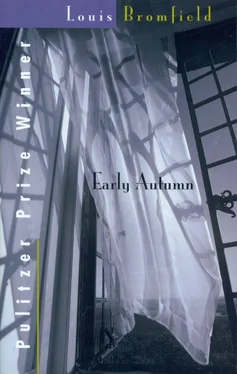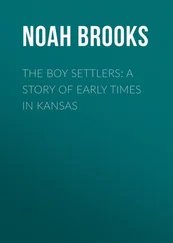2
Olivia was right in her belief that Anson was ashamed of his behavior on the night of the ball. It was not that he made an apology or even mentioned the affair. He simply never spoke of it again. For weeks after the scene he did not mention the name of O’Hara, perhaps because the name brought up inevitably the memory of his sudden, insulting speech; but his sense of shame prevented him from harassing her on the subject. What he never knew was that Olivia, while hating him for the insult aimed at her father, was also pleased in a perverse, feminine way because he had displayed for a moment a sudden fit of genuine anger. For a moment he had come very near to being a husband who might interest his wife.
But in the end he only sank back again into a sea of indifference so profound that even Aunt Cassie’s campaign of insinuations and veiled proposals could not stir him into action. The old woman managed to see him alone once or twice, saying to him, “Anson, your father is growing old and can’t manage everything much longer. You must begin to take a stand yourself. The family can’t rest on the shoulders of a woman. Besides, Olivia is an outsider, really. She’s never understood our world.” And then, shaking her head sadly, she would murmur, “There’ll be trouble, Anson, when your father dies, if you don’t show some backbone. You’ll have trouble with Sybil; she’s very queer and pig-headed in her quiet way, just as Olivia was in the matter of sending her to school in Paris.”
And after a pause, “I am the last person in the world to interfere; it’s only for your own good and Olivia’s and all the family’s.”
And Anson, to be rid of her, would make promises, facing her with averted eyes in some corner of the garden or the old house where she had skillfully run him to earth beyond the possibility of escape. And he would leave her, troubled and disturbed because the world and this family which had been saddled unwillingly upon him, would permit him no peace to go on with his writing. He really hated Aunt Cassie because she had never given him any peace, never since the days when she had kept him in the velvet trousers and Fauntleroy curls which spurred the jeers of the plain, red-haired little Sabine. She had never ceased to reproach him for “not being a man and standing up for his rights.” It seemed to him that Aunt Cassie was always hovering near, like a dark persistent fury, always harassing him; and yet he knew, more by instinct than by any process of reasoning, that she was his ally against the others, even his own wife and father and children. He and Aunt Cassie prayed to the same gods.
So he did nothing, and Olivia, keeping her word, spoke of O’Hara to Sybil one day as they sat alone at breakfast.
The girl had been riding with him that very morning and she sat in her riding clothes, her face flushed by the early morning exercise, telling her mother of the beauties of the country back of Durham, of the new beagle puppies, and of the death of “Hardhead” Smith, who was the last farmer of old New England blood in the county. His half-witted son, she said, was being taken away to an asylum. O’Hara, she said, was buying his little stony patch of ground.
When she had finished, her mother said, “And O’Hara? You like him, don’t you?”
Sybil had a way of looking piercingly at a person, as if her violet eyes tried to bore quite through all pretense and unveil the truth. She had a power of honesty and simplicity that was completely disarming, and she used it now, smiling at her mother, candidly.
“Yes, I like him very much. … But … but …” She laughed softly. “Are you worrying about my marrying him, my falling in love—because you needn’t. I am fond of him because he’s the one person around here who likes the things I like. He loves riding in the early morning when the dew is still on the grass and he likes racing with me across the lower meadow by the gravel pit, and well—he’s an interesting man. When he talks, he makes sense. But don’t worry; I shan’t marry him.”
“I was interested,” said Olivia, “because you do see him more than anyone about here.”
Again Sybil laughed. “But he’s old, Mama. He’s more than thirty-five. He’s middle-aged. I know what sort of man I want to marry. I know exactly. He’s going to be my own age.”
“One can’t always tell. It’s not so easy as that.”
“I’m sure I can tell.” Her face took on an expression of gravity. “I’ve devoted a good deal of thought to it and I’ve watched a great many others.”
Olivia wanted to smile, but she knew she dared not if she were to keep her hold upon confidences so charming and naive.
“And I’m sure that I’ll know the man when I see him, right away, at once. It’ll be like a spark, like my friendship with O’Hara, only deeper than that.”
“Did you ever talk to Thérèse about love?” asked Olivia.
“No, you can’t talk to her about such things. She wouldn’t understand. With Thérèse everything is scientific, biological. When Thérèse marries, I think it will be some man she has picked out as the proper father, scientifically, for her children.”
“That’s not a bad idea.”
“She might just have children by him without marrying him, the way she breeds frogs. I think that’s horrible.”
Again Olivia was seized with an irresistible impulse to laugh, and controlled herself heroically. She kept thinking of how silly, how ignorant, she had been at Sybil’s age, silly and ignorant despite the unclean sort of sophistication she had picked up in the corridors of Continental hotels. She kept thinking how much better a chance Sybil had for happiness. … Sybil, sitting there gravely, defending her warm ideas of romance against the scientific onslaughts of the swarthy, passionate Thérèse.
“It will be someone like O’Hara,” continued Sybil. “Someone who is very much alive—only not middle-aged like O’Hara.”
(So Sybil thought of O’Hara as middle-aged, and he was four years younger than Olivia, who felt and looked so young. The girl kept talking of O’Hara as if his life were over; but that perhaps was only because she herself was so young.)
Olivia sighed now, despite herself. “You mustn’t expect too much from the world, Sybil. Nothing is perfect, not even marriage. One always has to make compromises.”
“Oh, I know that. I’ve thought a great deal about it. All the same, I’m sure I’ll know the man when I see him.” She leaned forward and said earnestly, “Couldn’t you tell when you were a girl?”
“Yes,” said Olivia softly. “I could tell.”
And then, inevitably, Sybil asked what Olivia kept praying she would not ask. She could hear the girl asking it before the words were spoken. She knew exactly what she would say.
“Didn’t you know at once when you met Father?”
And in spite of every effort, the faint echo of a sigh escaped Olivia. “Yes, I knew.”
She saw Sybil give her one of those quick, piercing looks of inquiry and then bow her head abruptly, as if pretending to study the pattern on her plate.
When she spoke again, she changed the subject abruptly, so that Olivia knew she suspected the truth, a thing which she had guarded with a fierce secrecy for so long.
“Why don’t you take up riding again, Mother?” she asked. “I’d love to have you go with me. We would go with O’Hara in the mornings, and then Aunt Cassie couldn’t have anything to say about my getting involved with him.” She looked up. “You’d like him. You couldn’t help it.”
She saw that Sybil was trying to help her in some way, to divert her and drive away the unhappiness.
“I like him already,” said Olivia, “very much.”
Then she rose, saying, “I promised Sabine to motorcar into Boston with her today. We’re leaving in twenty minutes.”
Читать дальше












